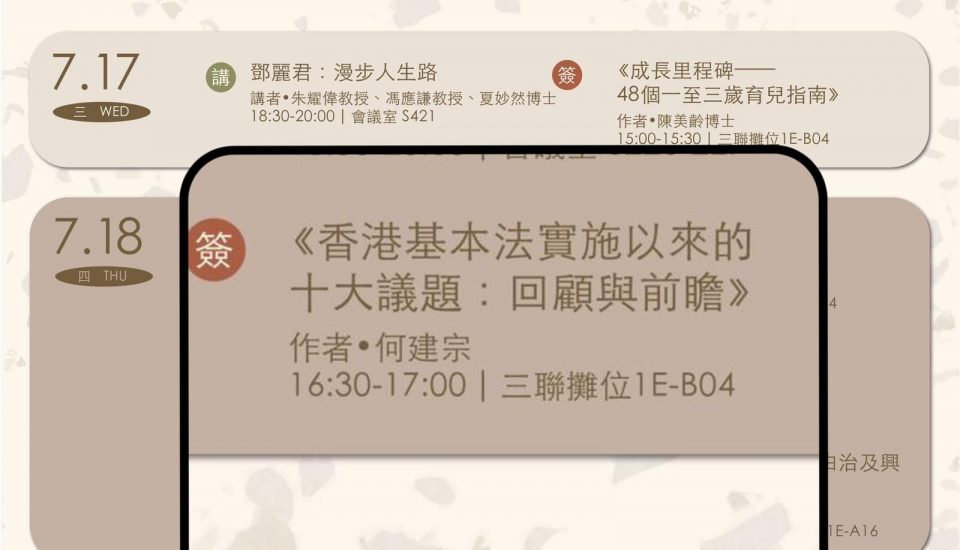Henry Ho: China charts course for high-quality development in post-pandemic era

大灣區十大傑出港生評選2023全面開啟!

本智庫到訪深圳北站港澳青年創新創業中心

The recently concluded first session of the 14th National People’s Congress marked the completion of the five-yearly leadership transition. President Xi Jinping’s unanimous reelection reflects the people’s confidence in his leadership to steer China toward more sustainable and inclusive economic development in the future.
With President Xi at the helm, China is poised to embark on a new stage of high-quality development in the post-pandemic era, and make significant strides on the path toward the nation’s great rejuvenation.
This year marks the first year for fully implementing the guiding principles set out at the Party’s 20th National Congress. In the closing remarks at the NPC meeting, President Xi reiterated that the central task of the Communist Party of China from now until the middle of this century is to comprehensively build the nation into a modern socialist country and advance the great rejuvenation of the Chinese nation. To achieve that, it is imperative to prioritize the role of high-quality development in advancing China’s modernization, as outlined in the strategic plan set forth in the 20th Party Congress report.
Over the past three years, China’s high-quality development process has been challenged by an increased public health threat, economic slowdown, and weak consumption. The uncertainty and volatility of the global economy has also affected China’s financial stability and investment flows. The GDP growth rate last year was only 3 percent, much lower than the targeted 5.5 percent. All these difficulties have tested the nation’s economic resilience and ability to innovate and adapt to new challenges.
With China having made significant achievements in the anti-pandemic fight, it is an opportune moment for the nation to fully implement the new development philosophy across all aspects of society. This includes pursuing reforms to further develop the socialist market economy and leveraging collective efforts to stimulate a new developmental model.
Promoting stable economic growth while ensuring stability becomes the primary task to restore confidence and foster high-quality development. Premier Li Qiang vowed to intensify policy support to achieve the annual GDP target of around 5 percent at his first news conference as premier. The number, also mentioned in this year’s Government Work Report, reflects the central government’s careful considerations after evaluating the current potential growth level and the uncertainty within the global market. Together with the targeted deficit-to-GDP ratio of 3 percent, the proactive fiscal policy is expected to encourage investment and consumption, leading to a stimulation of economic activity and the creation of more job opportunities.
The government is also committed to supporting and encouraging a balanced and dynamic mix of public and nonpublic sectors, which will help build a stronger and more resilient economy. Such emphasis was reflected in both Li’s response to the media and his rich work experience in localities with a strong private economy. By stressing the importance of upholding the policy of “two unswervinglys”, a favorable and predictable environment for long-term planning and investment is assured, leading to a healthy and balanced development of the economy.
In addition, technological innovation has been highlighted as a key factor in accelerating China’s high-quality growth. This is evident in the approved State Council Institutional Reform Proposal, which aims to optimize and adjust the responsibilities of institutions in key areas. The proposal prioritizes the restructuring of the Ministry of Science and Technology, with the establishment of a central committee for science and technology. Additionally, the proposal suggests the creation of a new national data administration to promote the development of basic data systems and integrated sharing, development, and utilization of data resources.
The move is expected to advance China’s technological self-reliance and enhance its competitiveness in the global arena. As emerging economies, such as India and Southeast Asia, become stronger competitors, China’s technological self-reliance becomes critical for developing cutting-edge technologies and maintaining a competitive edge in key industries. This will help China maintain its position as a global economic powerhouse, while creating new opportunities for Chinese companies and entrepreneurs to expand their influence and reach on the global stage.
Furthermore, China’s pursuit of technological self-reliance and global leadership in innovation will fuel continued growth and development, contributing to China’s high-quality development agenda. China can expedite its journey to becoming a world leader in innovation and shaping new technology and industry trends by promoting a more collaborative and synergistic approach to scientific and technological innovation. This will result in sustainable and inclusive development for the nation.
To fulfill the new mission and new task ahead, higher requirements have therefore been put forward by the new premier to strengthen governance capability-building. These include promoting the practice of research and studies, enhancing government administration in accordance with the law, exploring innovative ways in performing duties, and upholding the principle of integrity. The emphasis on these areas demonstrates the Party’s commitment to continuously improving its governance and providing better services to its people. By improving governance capability, China can better respond to the changing needs of society and the economy, and create a more efficient and transparent system of governance.
In conclusion, the newly closed first session of the 14th National People’s Congress marked an important milestone for China as it embarks on a new stage of high-quality development in the post-pandemic era. Through prioritizing stable economic growth, encouraging a balanced mix of public and nonpublic sectors, promoting technological self-reliance, and strengthening governance capability-building, China is taking significant steps toward building a more sustainable and equitable future for its people. With the guidance of President Xi and the implementation of the new development philosophy, China is well-positioned to achieve its second-centenary goal.
The author is a member of the Beijing Municipal Committee of the Chinese People’s Political Consultative Conference, and founder and chairman of the One Country Two Systems Youth Forum.
The original article was published in China Daily (March 17, 2023).




